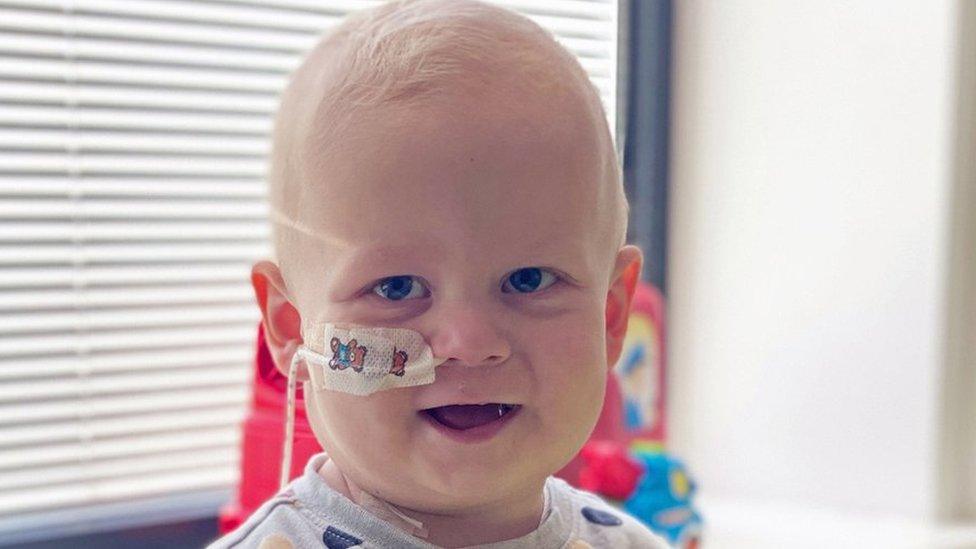Sepsis: 'My life changed eight years ago on Christmas Eve'
- Published
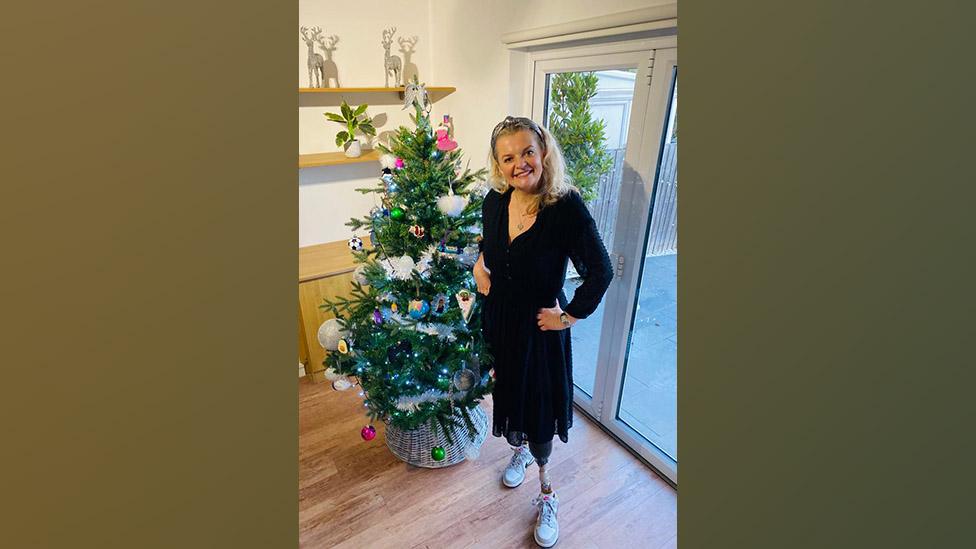
Tracy contracted sepsis and had to have her lower limbs amputated after she got a strep A infection
Eight years ago Tracy Ralph felt exhausted but thought she was just suffering from a cold.
The mother-of-two, from Hockley, Essex, was too busy to rest during the Christmas period, and tried to power through with painkillers.
On Christmas Eve 2014, she was due to take her five-year-old son to a pantomime and didn't want to let him down.
But she was struggling to breathe and went to see her GP who diagnosed her with pneumonia, which had developed from a strep A infection, and it was a nurse who then called an ambulance.
Tracy was then diagnosed with sepsis and hospital doctors put her in a coma. At one point her relatives were told to say their goodbyes.
She survived, but had had to have her fingers amputated as well as her legs below the knees.
Here, in her own words, she talks about coming to terms with life as an amputee and how she has used her experience to help others.

'You grieve the loss of a limb'
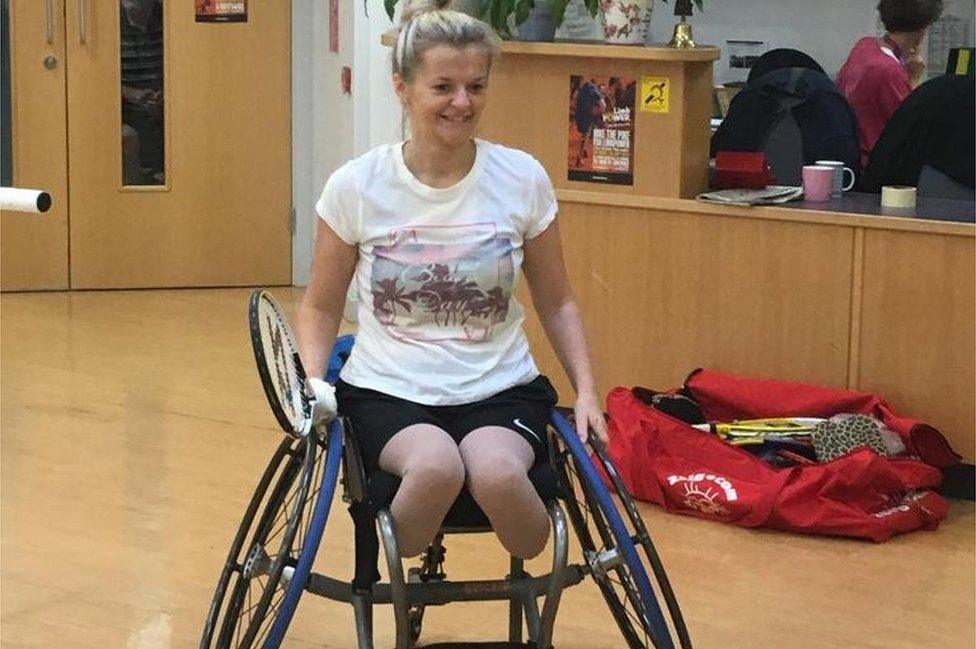
Tracy has learned how to think positively since she got sick
The years following my amputation were very dark and very difficult. I thought it would just be a case of learning to walk on the prosthetics, but I also needed support with my mental health.
You really grieve the loss of a limb and you have to go through a period of acceptance. I did have support, especially from my family and friends, but there is not enough professional support.
I felt like the only person in the world who had lost a limb and you can feel really isolated.
Looking back, I wasn't in a good place but I learnt cognitive behavioural therapy (CBT), which is really about changing the way you think and behave.
My mind doesn't let me go to a negative place anymore; I don't dwell on what happened to me.
Every day I try to incorporate CBT into the way I live and I just try to think positively.

'I want everyone to know the symptoms of sepsis'
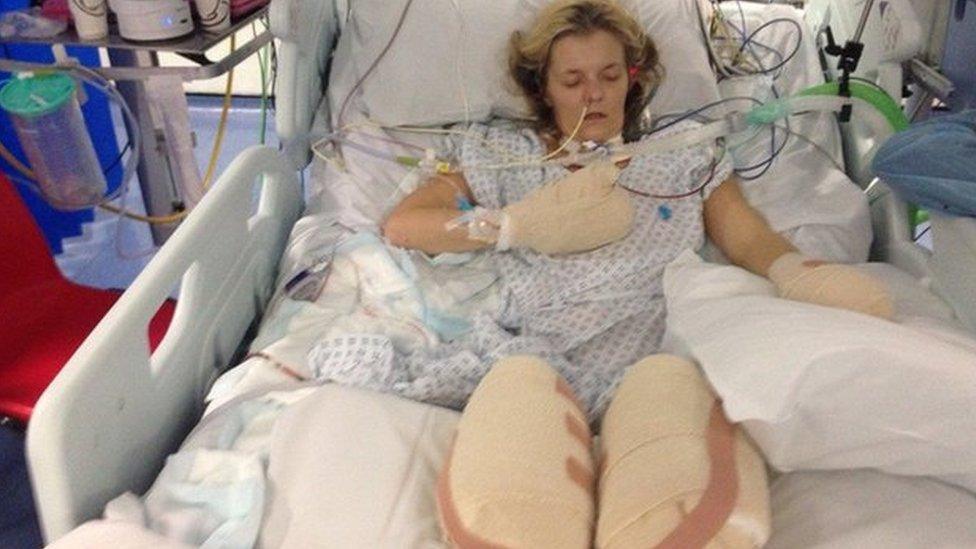
Tracy was put in an induced coma while she battled sepsis
My sepsis wasn't picked up quickly enough and my organs were beginning to shut down, so they had to put me in an induced coma.
My family were told to say goodbye to me several times, but I managed to pull through.
There still isn't enough awareness of sepsis and the signs and symptoms, external. My difficulty breathing was from the sepsis, but no-one realised this at first.
Now my local hospital in Southend tests for sepsis, external when people are admitted, but this wasn't the case in 2014.
I'm very passionate about raising awareness of the symptoms and I do a lot of talks, for the NHS and different organisations, because it can be so dangerous and it progresses so quickly.

'My children are very accepting'
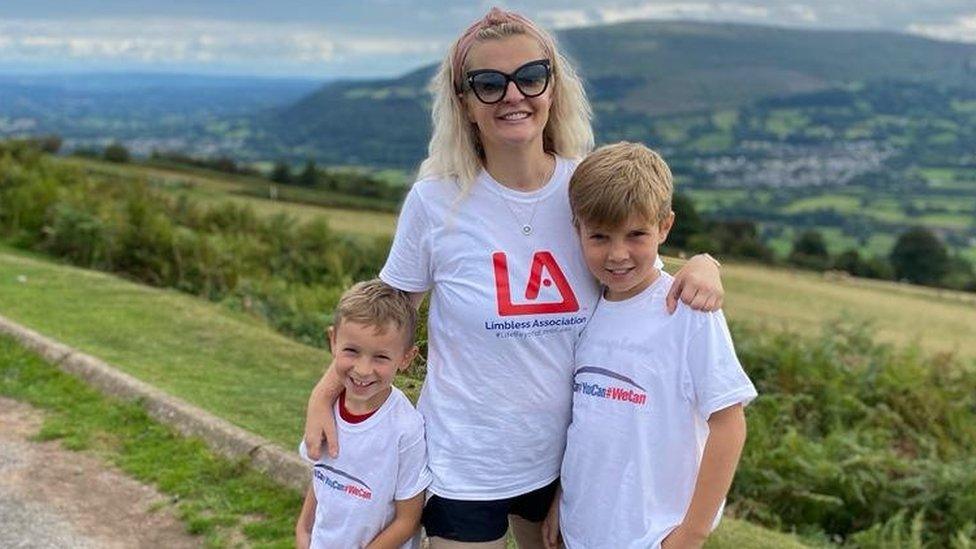
Tracy says her two children are very accepting and considerate about her amputation
My eldest son Miller, 12, remembers me before I got sick because he had just started primary school, but my youngest, Hudson, who was 16 months then and is nine now, has no memories of our life before.
They sometimes ask me about it but they take it in their stride; they're so resilient and they have learned so much about prosthetics.
The boys are very accepting of the fact it takes me longer to do some things, like go upstairs, and they are very aware of people with disabilities.
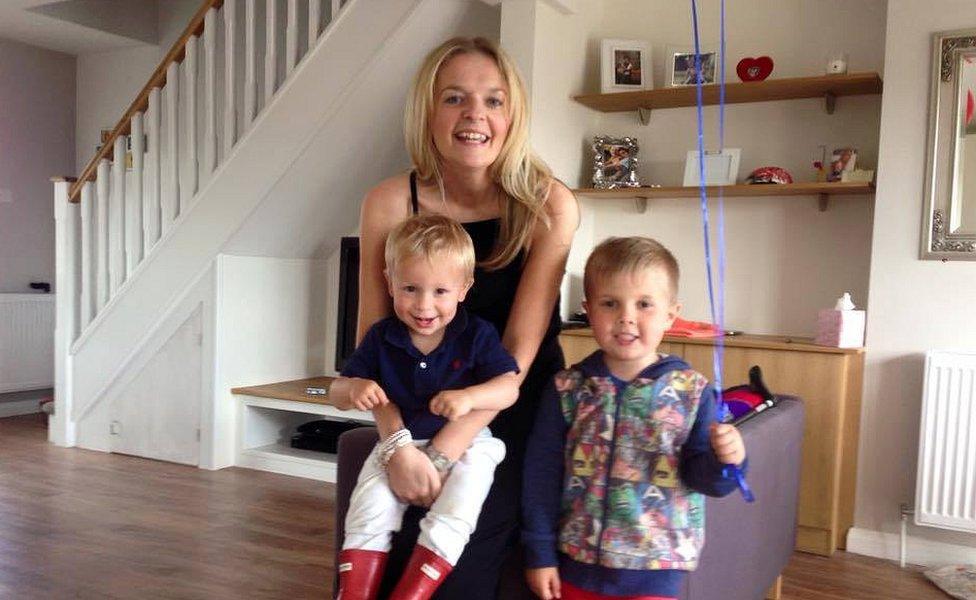
Tracy's sons were very young when she had her legs amputated
It's not always rosy, I do have my days where I'm exhausted and I will choose to be in my wheelchair that day. Sometimes I can't use my prosthetics because its icy outside or perhaps I've got a sore.
I often rest a bit more at weekends.
But the good days outweigh the bad. I'm still really active - I try and do a triathlon every year and recently climbed the O2. I'd love to get some blades in the future so I can run properly.

'I just want to help people'
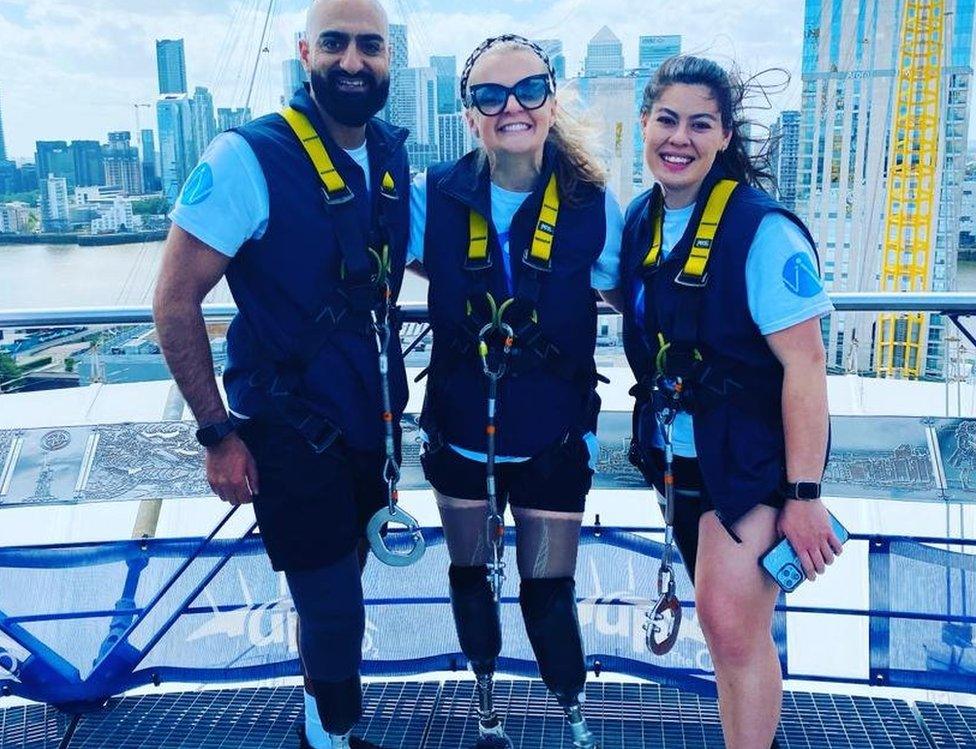
Tracy recently climbed to the top of the O2 arena (aka the Millennium Dome) in Greenwich in London
Until you have accepted what has happened to you, you're not in a position to give anything back.
Once I felt stronger mentally, I decided to start volunteering for The Limbless Association, external, who had given me support and access to therapy.
I now work for the charity supporting amputees by going into hospitals and rehabilitation clinics and talking with them.
This job has been the best thing that has ever happened to me. The charity's slogan is "No Amputee Need Cope Alone", and I truly believe that.
It is so rewarding and I've met so many amazing people. It gives me a sense of purpose and I feel so much less isolated.
I just want to help people who are going through such a difficult time because I know exactly how they feel.

'Christmas is a mix of emotions'
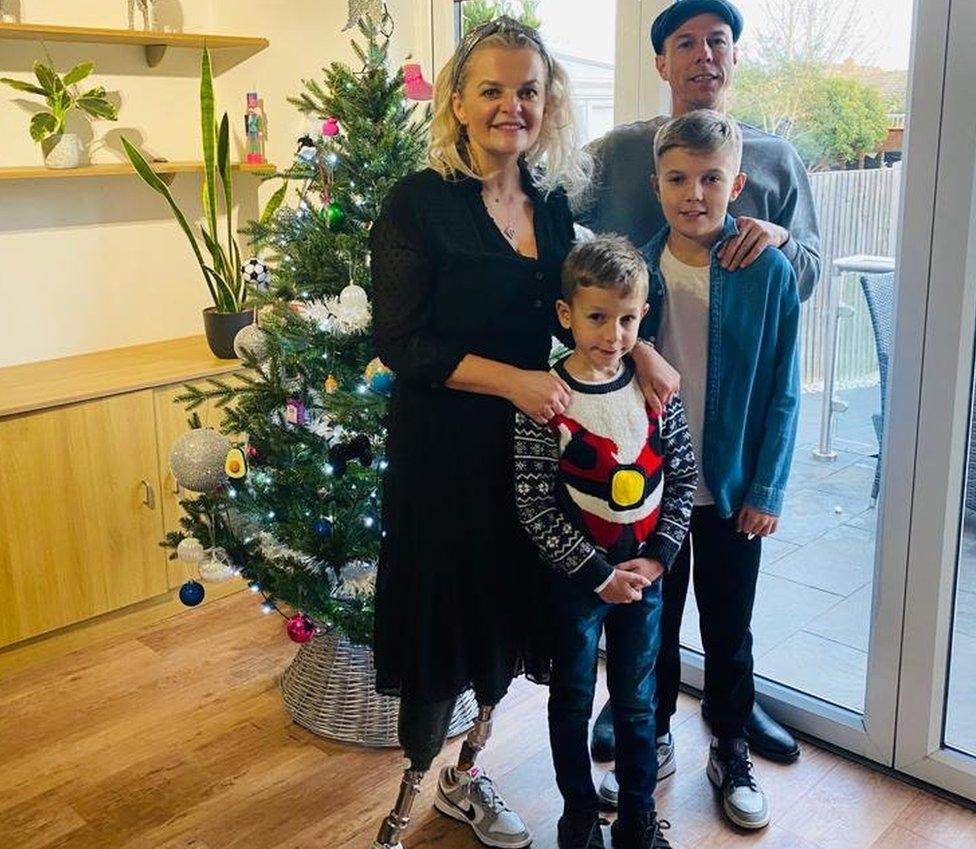
Tracy (pictured with husband Brad and their two boys) says Christmastime is a mix of emotions for her
I can't believe it's now eight years since this all happened; it feels like it has flown by.
I've almost forgotten what my life was like before and I try not to dwell on it.
My life completely changed that day but I don't feel resentful about it.
Christmas is a real mix of emotions for me. I don't let it get to me, but its always at the back of my mind. It's always there but I have to move forwards.
Eight years ago on Christmas Eve we were meant to be going to a pantomime but we didn't make it. This year I have booked a panto again on Christmas Eve.
I had a bit of a wobble about the date but I thought 'I'm going to conquer this, I'm going to go and I won't let what happened define me, that is in the past'.
Looking back, I do feel proud of myself for how far I've come and for accepting what has happened to me.
I'm really happy now, I've got a lovely husband and two lovely boys. I feel lucky for the life I've got and actually I wouldn't change anything.

Find BBC News: East of England on Facebook, external, Instagram, external and Twitter, external. If you have a story suggestion email eastofenglandnews@bbc.co.uk, external
Related topics
- Published24 December 2015
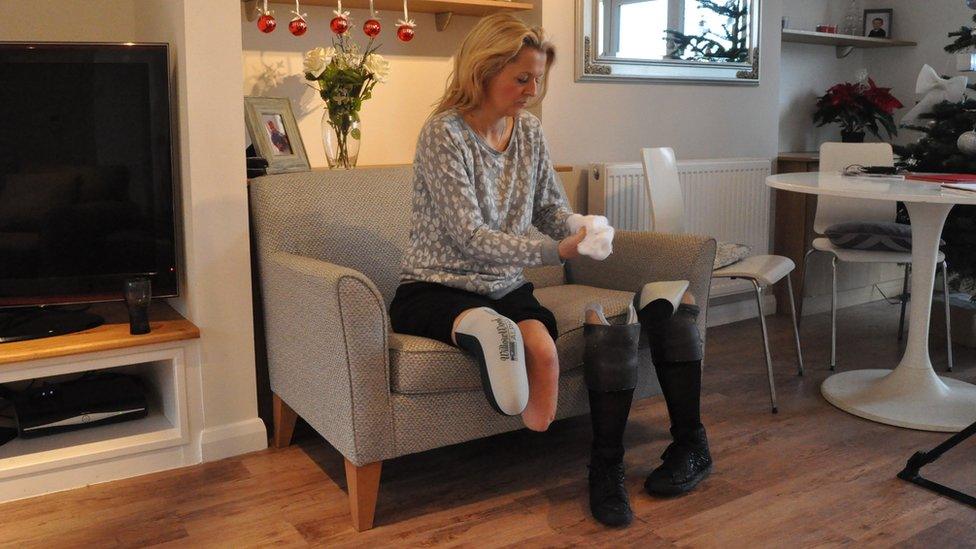
- Published25 May 2022
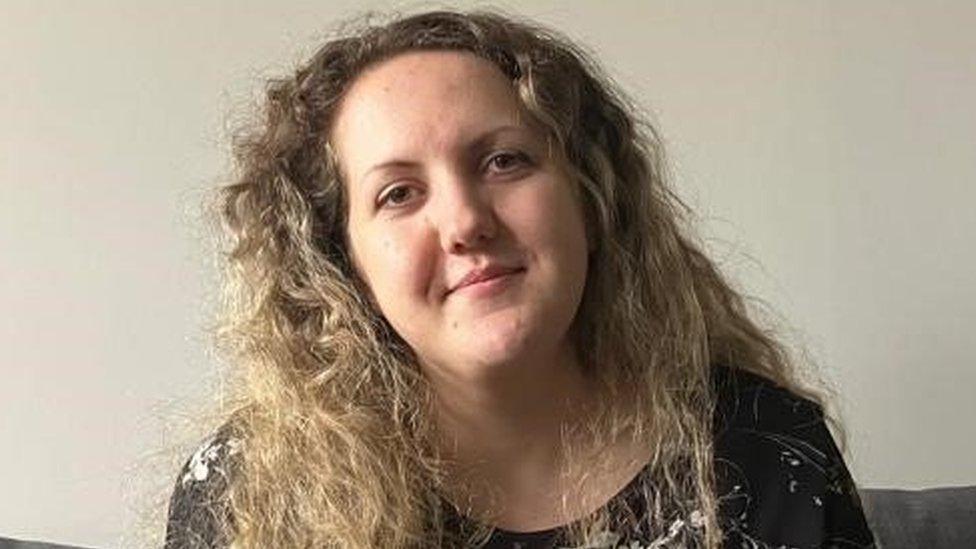
- Published8 November 2022

- Published13 October 2022
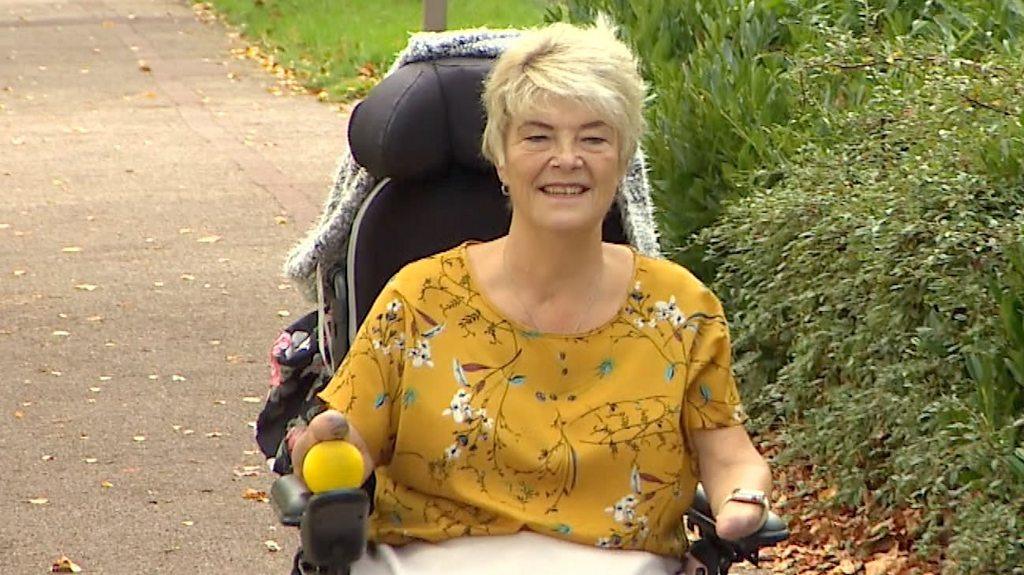
- Published24 April 2022
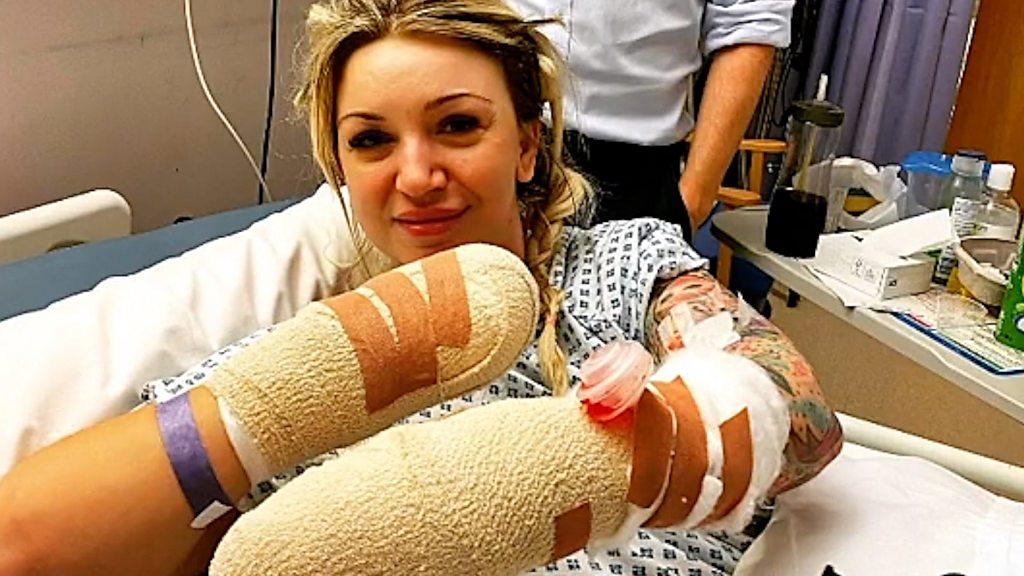
- Published3 March 2022
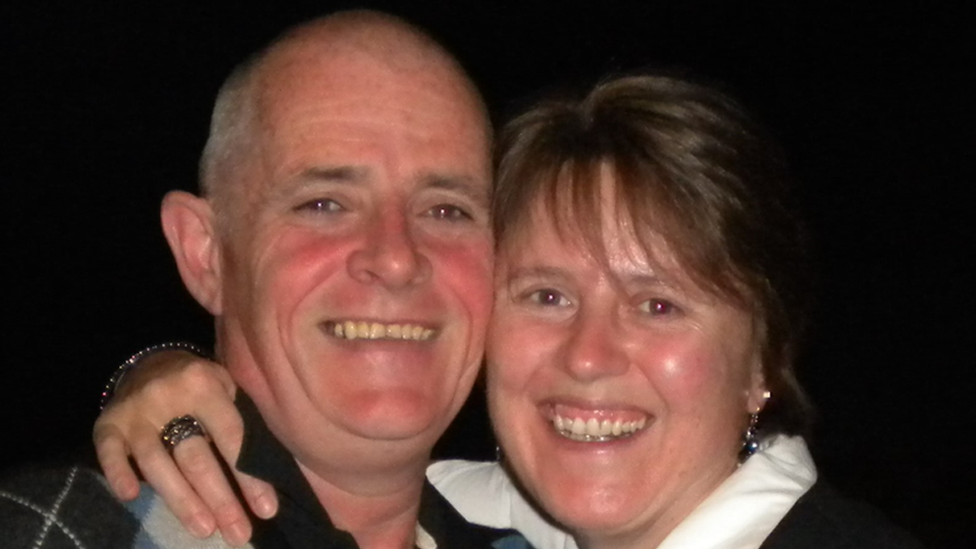
- Published7 July 2022
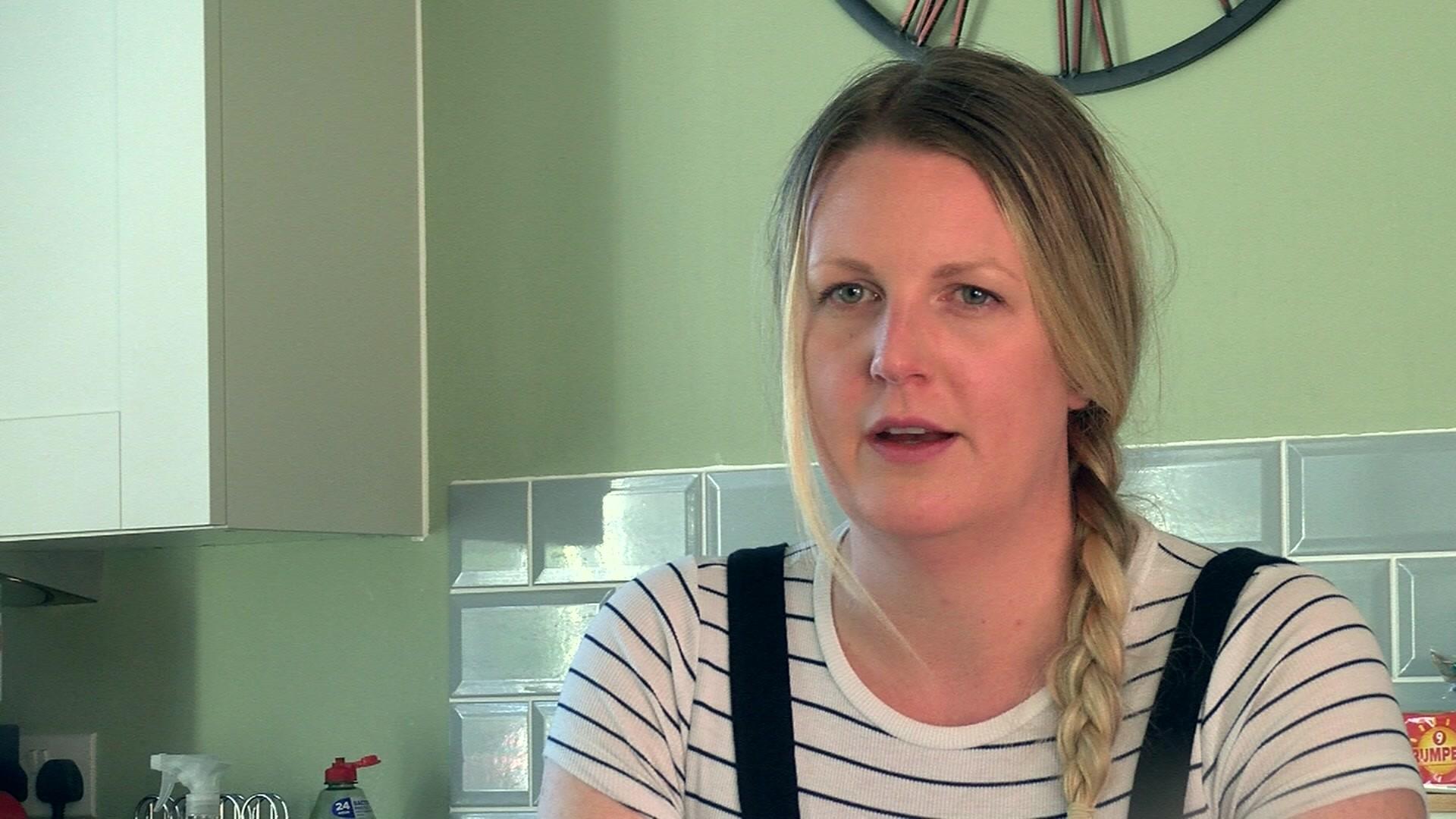
- Published1 September 2022
